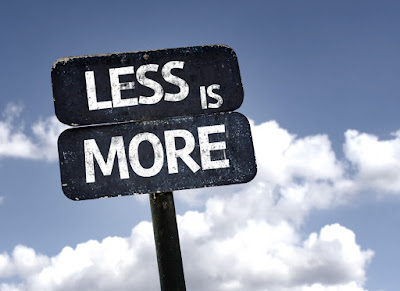Less Really Is More

As musicians, we are always working on our craft (we should be), always practicing, always improving. That's important. The minute you stop, you start to degrade. You lose your edge, your facility. And as music evolves and changes, so should you. The way you played 10 or 20 years ago is not necessarily the way you should be playing today. Look at artists like Bowie and Prince, they played much of the same music over their long careers, but the music often changed to stay fresh, stay relevant. But let's look at technique. It's great to practice playing faster, better, in weird time signatures, etc. But how relevant is that in the real world, to the gig/s you play right now? Hey, I'm all for practicing everything, but the problem a lot of musicians have is building up all this technique, and an arsenal of licks to go along with it, and then thinking they can use it any and everywhere! One thing I constantly tell my students is: The song will tell you wha...



